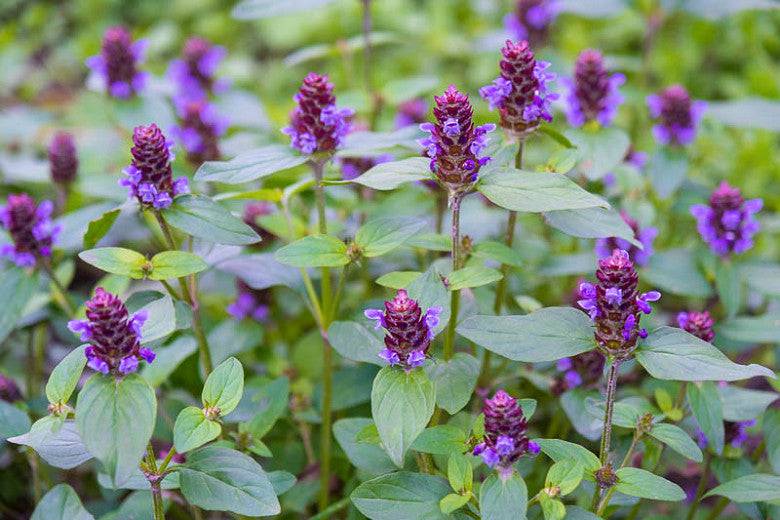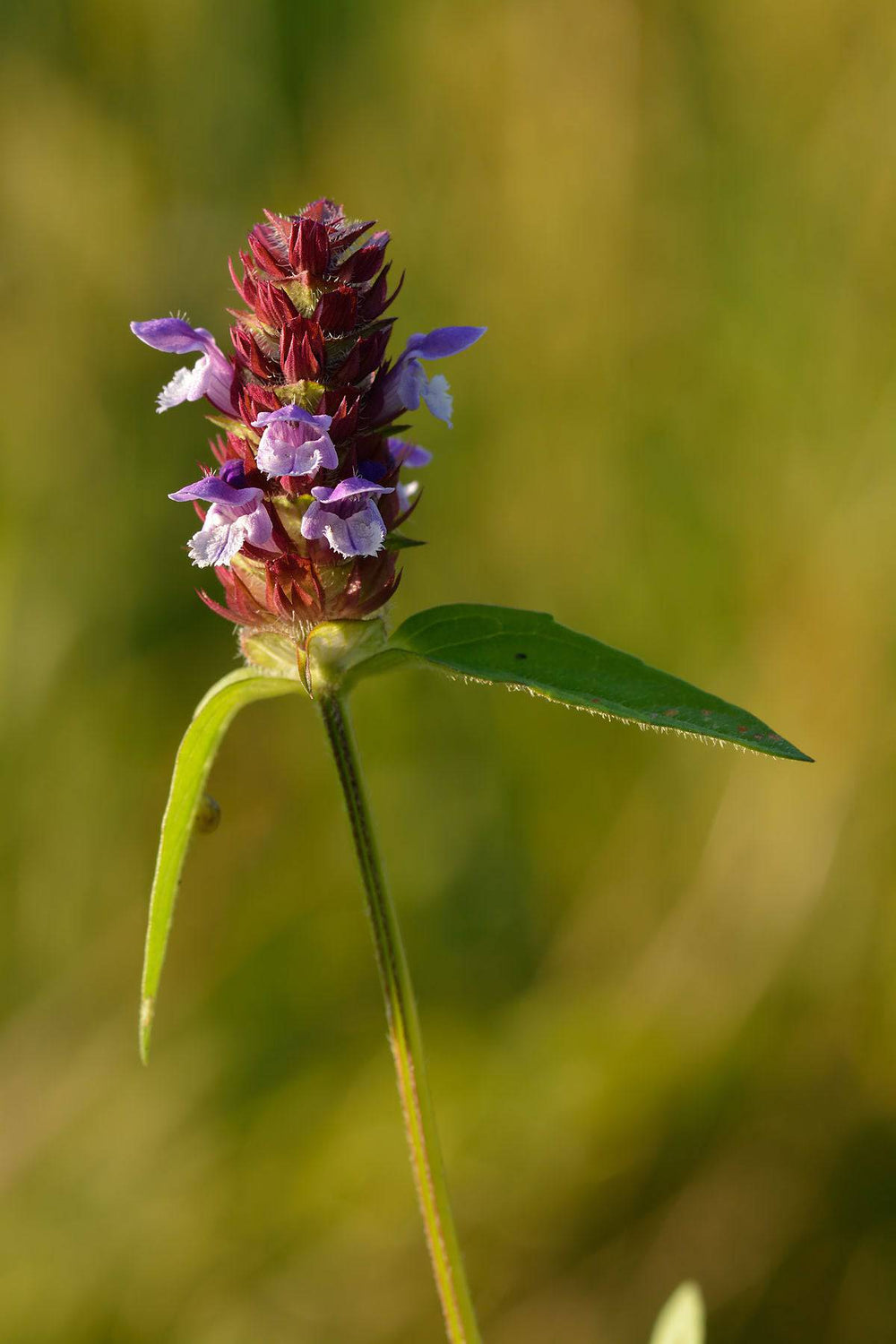Selfheal
- Shipping Available
- In stock, ready to ship
- Backordered, shipping soon
Prunella vulgaris
This low perennial is easily recognized by its erect, many-flowered spikes and associated, overlapping, hairy bracts. The square stem has dense, cylindrical, terminal spikes of purple flowers; the tips elongate after flowering. It is often considered a weed of lawns and moist shady spots. A form that flowers when only 2" (5 cm) tall has become common in lawns. Its common name derives from wide use as a herbal remedy for throat ailments.
Its favorite habitat includes moist fields, gardens, pastures, and along woodland edges in Texas's eastern and southern portions. It can be grown almost anywhere, with a little extra water in dry conditions. In scorching areas, give it a spot protected from the hot afternoon sun.
BONAP MAP
Height: 6”-12”
Spread 1’-3’
Bloom: May-September
Light: Full Sun, Part Shade
Water: Moderate
Zone: 4, 5, 6, 7, 8, 9
Origin: Central North America
Winter Shipping: We will continue to ship throughout winter. If you prefer, we are happy to hold your order until spring; please include that request in your shipping notes.
When you order plants from our nursery, you can expect them to arrive in the best possible condition. Our team carefully packs each order using sturdy, biodegradable packaging materials.
Your plants' appearance may vary depending on the season and their current growth stage. We may cut back the leafy growth of some plants to prepare them for shipment and transplanting.
5 Gallon and Up: Any plant purchased to ship over 5 Gallons will be shipped bare root. This means we will remove the plant from its original pot, remove the soil surrounding the roots, and wrap the roots with a biodegradable plastic bag. This reduces weight and the likelihood of damage during shipping.
Once your plants arrive, it is essential to plant them as soon as possible. This will help them rebound and thrive. If you cannot plant immediately, water regularly and keep the roots off heat-conducting surfaces.
Newly transplanted plants often require more water until their roots are well established. Plan to water them 1-3 times weekly for the first few months.
Pairs well with




















